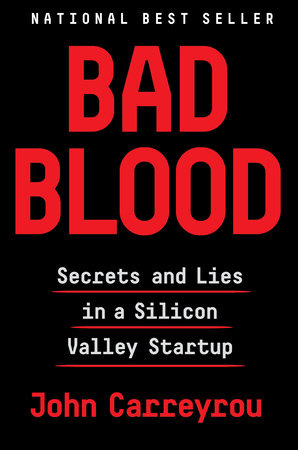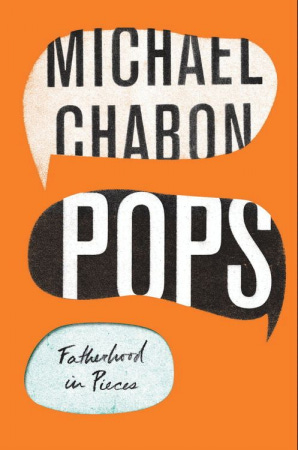What I'm Reading (No. 24): Bad Blood + essays on dadhood
Bad Blood by John Carreyrou

Just two weeks ago, federal prosecutors charged Elizabeth Holmes with defrauding both investors and doctors/patients with the products of her now infamous company, Theranos.
I didn't actually catch that bit of news until spending this week reading John Carreyrou's insane journalistic account of Holmes and Theranos titled Bad Blood. Holmes was a Stanford dropout who had an idea to revolutionize blood testing: a small, portable, wifi-enabled machine, with which a tiny drop of blood could have you tested for hundreds of conditions in just a few minutes. Turns out the reality of creating that machine was a bit harder than the dream.
But Holmes didn't let on to that fact. She duped some of the most well-known investors in Silicon Valley into believing she had a working blood analyzer and faked her way through government regulations and protocols. Obscene amounts of money were poured into Theranos, and in 2015 at the age of 31, Holmes was reported to have a net worth of over $4 billion. It was really the definition of a meteoric rise, and the media fell in love with her with glowing profiles and TV interviews. (You should watch this one. She uses an odd, faked baritone voice.)
Slowly, and with the help of extremely courageous whistleblowers (who were followed and threatened and sued many times over), it all started to unravel. And once the machine was actually rolled out to a number of retail stores, it became clear that it didn't work, and was in fact putting patients in harm's way.
Carreyrou was the Wall Street Journal reporter who first publicly eviscerated the company, and this book includes not only the Theranos story, but the remarkable lengths Holmes went to in order to keep Carreyrou from publishing the story (which I suppose actually makes sense if you have billions of dollars on the line).
You can tell it's a journalist's account, because it's a pretty straightforward reporting of the facts, without much in the way of character analysis or the story's far-reaching effects. That said, the facts are so insane that there's no hint of boring over the course of its 300 pages.
An incredible, dramatic story to read that anyone can enjoy, but especially if you're interested in the culture of Silicon Valley (particularly the ludicrous amounts of money being thrown around) or in public health and the biotech industry. You hear plenty about tech industry successes, but not much about the failures. Bad Blood is a much-needed cautionary tale.
Pops by Michael Chabon

Chabon's popular and acclaimed novels have long been on my to-read list: The Amazing Adventures of Kavalier and Clay (which won the Pulitzer), Wonder Boys, The Mysteries of Pittsburgh, and more. When I found out he recently published a book of essays on fatherhood, I figured it was a good chance to dip my toes in the water of his writing and see what I thought.
Pops: Fatherhood in Pieces is short (just over 100 pages) but memorable. Chabon is definitely an excellent writer (duh, like he needs my affirmation of that . . .) and has a way of saying things in artistic, but also realistic, ways. Hence being a writer of novels.
The lead essay, and one of the best of the 7 contained within, originally ran in GQ and is titled "Little Man." It's about how one of Chabon's sons is really into fashion despite dear old Dad being a thrift store connoisseur. And so Chabon brings him to Paris Fashion Week and finds out his son is actually a budding, cutting edge expert on men's fashion. This son had displayed a love of clothing ever since he was 5 years old and laying out his outfits every morning. How does stuff like that happen? With two young kids who aren't quite old enough to show those kinds of proclivities yet, I'm intensely curious as to what kinds of interests they'll someday have that are the complete opposite of mine. . .
There's an essay about baseball, about reading Huckleberry Finn out loud to his kids (and what to do about the oft-repeated n-word), about his relationship with his own dad. It reads quickly, and gives a keen look at some of the unique joys, difficulties, and absurdities of parenting. There isn't really a lesson or takeaway, necessarily, but I actually appreciated that. It's just observation and some fun stories. And sometimes that's exactly what the parenting genre of books needs — parents commiserating about the craziness of the role.
That's all for this week. Next week will include my June recap and maybe something bookishly patriotic. Who knows. Either way, have a great holiday next week, and let me know what you've been reading!
-Jeremy
